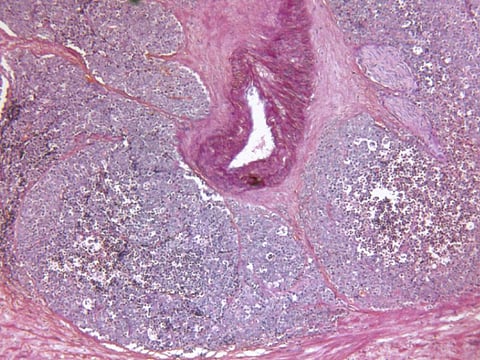FRIDAY, Sept. 16, 2016 (HealthDay News) -- For hypogonadal men with prostate cancer, testosterone treatment seems oncologically safe, according to a study published in the October issue of The Journal of Urology.
Jesse Ory, from the University of British Columbia in Vancouver, Canada, and colleagues identified a cohort of 82 hypogonadal men with prostate cancer treated with testosterone therapy. Patients (median age, 75.5 years) were followed for a median of 41 months.
The researchers found that in the entire cohort there was an increase in testosterone (P < 0.001) and prostate-specific antigen (P = 0.001). The eight patients on active surveillance had an increase in prostate-specific antigen; none of the patients were upgraded to higher Gleason score and none had started definitive treatment. Among patients treated with radical prostatectomy, there was no biochemical recurrence; however, 6 percent of those treated with radiation therapy experienced biochemical recurrence. It was not clear whether these cases were related to testosterone therapy. In the radical prostatectomy, radiation therapy, and active surveillance groups the mean prostate-specific antigen velocity was 0.001, 0.12, and 1.1 µg/L per year, respectively.
"In the absence of randomized, placebo controlled trials, our study supports the hypothesis that testosterone therapy may be oncologically safe in hypogonadal men after definitive treatment or in those on active surveillance for prostate cancer," the authors write.
One author disclosed financial ties to Genyous.
Abstract
Full Text


